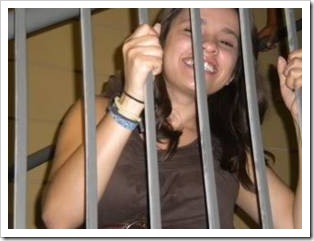 We finished dinner at 7:00pm and sat in a circle after we had read our “I believe in you” letters and they were all very emotional. I asked them to tell me what they wanted to do. During the day, I told them that being assertive meant expressing their needs and from time to time, I asked them to speak up and tell me what they wanted. Only the brave students said, “We need a bit more time”.
We finished dinner at 7:00pm and sat in a circle after we had read our “I believe in you” letters and they were all very emotional. I asked them to tell me what they wanted to do. During the day, I told them that being assertive meant expressing their needs and from time to time, I asked them to speak up and tell me what they wanted. Only the brave students said, “We need a bit more time”.
In the morning, I gave the kids an assignment in groups. They had to come up with 100 things you can do with a sheet of paper and submit it the following morning. This task was given to them early and they had to find time to do it and to share the responsibilities among them. From time to time, when they went to play outside, I reminded them they had to prepare an exhibition of their 100 items very early the next day.
As we sat in the circle, one of the students asked, “Can we have 5 minutes break?”
“Can we have half an hour break?” another student asked.
“No, we can take 10 minutes”, another student said. For about 2 minutes, they discussed how long they needed the break to be. At the end of this conversation, they asked for a 10-minute break. Elvis (yes, that is his name), a deputy principal who was one of the camp leaders, asked the kids before they rushed out of the hall to watch the clock on the wall and be back in exactly 10 minutes. A group of kids rushed out to their rooms. Managing time was part of our focus during camp, so we were happy to examine how well they would do it.
10 minutes passed and I called the kids back to the circle, but 8 girls were missing. Some of the kids in the circle looked at the door, waiting for the missing girls to come in so we could continue our activity.
“I gave you 10 minutes. Where is everyone?” I asked (I actually hate it when people complain to the ones who are there about those who are not). The kids stared at me and said nothing.
I thought it was a great opportunity to stir things up and give them new power and said, “I trusted you. I gave you a 10-minute break and now, not everyone is here. What do you think I should do?”
 While we were talking, Carla, one of the camp teachers, wrote everything we said. Here it is (except the kids’ real names):
While we were talking, Carla, one of the camp teachers, wrote everything we said. Here it is (except the kids’ real names):
Drake: I think they should go without dessert.
Al: I think someone should go and get them.
Emma: They still have to complete their project.
Joan: No desert for them and they should hand in their project earlier in the morning.
Don: Yes, they should be punished for not coming on time.
Dennis (realizing it might be complicated to make them hand in their project early in the morning, because the missing girls were from different groups): It’s not fair. We can just go and get them.
I let them speak and said nothing. Elvis and Carla looked shocked. I had said only one sentence that triggered all of that.
Luke: When they come, we’ll tell them they need to go back to their room and they have to run in the morning (in a previous discussion, the kids had asked if they had to run in the morning and Derek, the principal, started a discussion about choice. Luke thought that running in the morning was taking that choice away from them).
Liza: They can choose between doing the project and no dessert.
Tom: No dessert.
Beth: I think they should go back to their room AND run in the morning.
Nick: Go back and no desert.
 By then, dessert had been waiting for us for about an hour and there was no chance there would not be enough for the missing girls.
By then, dessert had been waiting for us for about an hour and there was no chance there would not be enough for the missing girls.
Chris: Go to bed, no dessert, run in the morning and yoga all day.
Kirk: No dessert.
John: No dessert.
During that time, the girls had not come back, but the kids were getting pumped up. Some of them, had vicious victory smiles on their faces when they told me how to punish them (which I had not asked them to do – I had only asked what they thought I should do).
At that stage, I was facing the entrance and saw the girls approaching.
Cody: I think the punishment should depend on how late they are.
Chris: No dessert.
The girls entered the room. I stopped them at the entrance so they heard the last two suggestions. They were very disoriented and I asked them to stand outside the circle and listen. The kids in the circle stopped talking.
“What happened?” I asked the girls.
They looked at me not really understanding what I was asking. One of the kids in the circle said, “You were late”.
Rachel said it was one of the other girls’ fault.
Krista: I didn’t know what time it was.
Jenny: I don’t wear a watch.
Britney: I don’t have a watch at all.
I looked at the kids at the circle and asked, “What do you think?”
Kirk: This is not an excuse. You can’t give that as an excuse in a job interview.
Chris: What would happen if you were late for an exam?
Beth: Sometimes, when you are late, it is disrespectful, like if you’re late for a hairdresser’s appointment, you are wasting the hairdressers’ time.
Ronit: Does it mean they have wasted your time?
I knew it was going to add more fuel to the discussion. I gave the kids in the circle power and wanted to know how they would use it.
By that stage, the girls understood that the discussion was about their punishment for being late. I looked at them, still standing on the side, and asked them, “What do you think we should do?”
Their suggestions were far harsher than those of the kids who were in the circle.
- Miss out on dessert and stay back 5 minutes
- Do more work
- Clean dishes
- Go to bed 10 minutes later
 Dennis kept saying it was not such a big deal. “It was just 10 minutes”, he said.
Dennis kept saying it was not such a big deal. “It was just 10 minutes”, he said.
Jenny, one of the girls who came late, said, “I don’t care if I miss dessert”.
I knew then the war had begun. I had guards and I had prisoners. Dennis was the only kid who tried to ease the tension. “I don’t think we need any punishment. If we punish them, we won’t gain anything”, he kept saying.
Jane (late girl): I apologies for being late.
Shene (late girl): I apologies too.
Cody: I don’t believe Shene.
Ali (jumping to defend Shene): Why not?
Cody: Because you girls are always on time and you behave like you are all perfect and the boys are the troublemakers and now you are the troublemakers.
Ali, who was from the same school as Cody, said, “Most of the girls here are not from our school. They’ve never told you they were perfect and you’re not. It’s not their fault that the girls at our school always behave and the boys don’t.
Nick: We can forgive them but still think they need to be punished. My suggestion is a big run in the morning.
Riana (late girl): I think I deserve punishment. Half a dessert and no washing dishes.
At that stage, something happened to Chris. At first, he wanted the girls to get a big punishment, but something happened that made him change his mind. He said, “I think we are wasting more time deciding on a punishment”.
Ali, who was one of the late girls but was the bravest one and took responsibility to respond, said she understood punishment was appropriate, but said, “In my mind, punishment related to food is inappropriate”. She suggested they spend more time working on the project, since they had wasted some of the group’s time.
Jordan commented, “More time isn’t punishment, it’s an advantage”.
Elvis, the deputy principal, took the lead and said, “I want you to think about this. I believe that punishment benefits the punisher more and the punished learn very little”.
 The kids became very quiet. By then, I had allowed the girls to come and stand next to me. They were still not part of the group and some of them seemed a bit tired standing and leaned on the chairs next to them. Some kids from the circle said to them, “You can’t sit down”. I said nothing. Some girls remained standing, but others ignored the comments and sat down.
The kids became very quiet. By then, I had allowed the girls to come and stand next to me. They were still not part of the group and some of them seemed a bit tired standing and leaned on the chairs next to them. Some kids from the circle said to them, “You can’t sit down”. I said nothing. Some girls remained standing, but others ignored the comments and sat down.
Dillon raised his hand and said, “I think we should go without punishment”.
Jordan raised his hand. “Ronit, I think this is another one of your tests”, he said. I was so proud of him for spotting it.
Krista said, “Yes, I think you are using what happened as a learning experience”.
Some time before, two of the other members of the Together for Humanity foundation, Ahmad and Peter, had gone to the shops to buy some marshmallows and wood for the fire. At that point, they entered the room.
Tom and Cody tried to fill them in with what happened. It sounded as if the girls had done something horrible. Ahmad, who had been my work partner for a while, smiled and asked the kids, “Were the girls intentionally late or were they late because they didn’t wear a watch?”
Cody: You are meant to be on our side. If the girls aren’t punished, they will feel they can get away with it.
Ali: What do you gain from punishing us?
Dennis: There were no evil intentions. I disagree with Cody. I believe them.
Chris: I still think this is whole thing is a waste of time.
Jordan: I disagree with Dennis. How long does it take to go to your room, get a pencil case, go to the toilet and come back here?
Britney (one of the late girls): We said sorry.
I looked at the kids in the circle. “What have these girls done to you?”
Cody: They’ve wasted our time.
Ronit: They’ve wasted 10 minutes of your time. I’ve just wasted 40 minutes of your time with this discussion. I don’t hear you suggesting to punish me.
Elvis: Does every wrong deed require punishment?
Chris: I regret my punishment suggestions. The girls did not mean anything wrong.
The girls smiled.
John: Look at them smiling. I think the punishment should be worse.
 Krista (one of the late girls): What you see as smiling is actually covering feeling of guilt.
Krista (one of the late girls): What you see as smiling is actually covering feeling of guilt.
Dennis: No punishment. It was only 5 minutes late (notice how he changed the time to make his point).
Emma (one of the girls in the circle): I change my choice to a smaller punishment. They should be last to be served breakfast.
Shene (late girl): We should set up for breakfast tomorrow as punishment.
Cody: Without punishment, they get away with it.
Kirk: We need punishment so they’ll learn.
Krista: Not all wrongdoings need punishment. Sometimes regret is enough.
Ali (late girl): I’ve changed my mind. I think we were punished enough standing here for 40 minutes.
Tom: I think like Ali. I believe the girls have already had enough punishment standing up for 40 minutes for being 5 minutes late.
Jordan: I think standing for 45 minutes is enough punishment.
Beth (late girl): People make mistakes and can learn from them even without punishment.
The girls were now sitting on the floor or on chairs. They gradually sat down as they got tired standing up.
Britney, who was one of the late girls, said to the kids in the circle, “You should have a bit more conscience”.
During the whole time, no matter what kids said, Dennis kept his point of view that nothing serious had happened and that we could solve the whole thing by sending someone to call the girls back.
Shane: Can we just forgive and forget?
 An hour had passed and the group was divided. I took over and told them I was the one who would decide what to do. More than half the kids in the circle had changed their minds about punishment and were willing to move on. I was not sure if they had changed their minds because they really thought punishment was not necessary, they were too stressed about the long discussion or wanted to get to the dessert faster.
An hour had passed and the group was divided. I took over and told them I was the one who would decide what to do. More than half the kids in the circle had changed their minds about punishment and were willing to move on. I was not sure if they had changed their minds because they really thought punishment was not necessary, they were too stressed about the long discussion or wanted to get to the dessert faster.
Still, there was a group of boys who kept trying to convince me to punish the girls, while the rest did not try to convince me to cancel the punishment. They tried to convince the others that no real harm had been done.
I was standing there for one hour, not believing how easy it had been to create a little war between two groups over something as simple as being 10 minutes late. How easy it had been to give power to one group and take it away from another. I was shocked how the late girls had taken blame and given themselves punishments and how easy it had been to fire them up and make them feel like the girls had taken something away from them.
It made me think there is no wonder we live in a society in which people – leaders, bosses, teachers and even parents – do not make good use of their power but abuse it for the desire to be strong and in control.
I took comfort in the fact this whole discussion had been recorded and that I would be able to read it later and reflect on it and that we had learned a big lesson as teachers.
This was the second year we had run this camp and our results in the previous year had been brilliant, so I thought that on top of teaching the student leaders to be creative, considerate, organized, to have good time management and to be ethical, we needed to add the test of power into each program – only true leaders would pass it.
We all went for dessert. All the girls with the kids who thought punishment was not necessary stayed until late to work on their assignment. I promised I would stay awake until the last child was in bed. From 8:30, after eating so much chocolate mousse with fruit salad they almost threw up, every half an hour, I asked the kids to consider going to bed and continuing in the morning. The last one went to bed at 1am.
In the refection session the next day, we sat in a circle to talk about what the kids would be taking away from camp and what about the most meaningful things that had happened to them. Most of them (including the kids who had suggested a punishment) said, “The debate”.
I think they got it.
Now, we need to wait for a real life power situation to see how well they will pass.
Would you pass the power test as a parent?
I hope so,
Ronit
This post is part of the series Kids in Power Prison:
- Kids in Power Prison (1): The prison experiment
- Kids in Power Prison (2): The great debate











